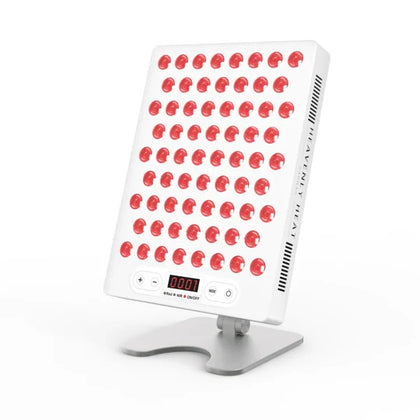Does Sauna Affect Female Fertility?

Worried about how your sauna routine might impact your fertility? You’re not alone. In the U.S., 1 in 5 women between 15 and 49 struggle with infertility, and the thought of adding to those numbers is daunting.
Discover how saunas can affect female fertility and learn what steps you can take to protect your reproductive health.
Key Takeaways
- Saunas are generally safe for most women but can pose risks during pregnancy.
- Hydration is crucial when using saunas to protect fertility.
- Regular exercise, avoiding alcohol, and quitting smoking can improve fertility.
- Maintaining a healthy weight is important for boosting fertility.
Does Sauna Affect Female Fertility?
According to research published in The American Journal of Medicine, sauna bathing does not negatively impact female fertility and is considered safe for most healthy women.
The study notes that while sauna use causes temporary cardiovascular and hormonal changes, these do not affect fertility or pose risks during uncomplicated pregnancies.
However, some research indicates that elevated body temperatures from sauna use during pregnancy could lead to complications or birth defects, especially in the first trimester.
Pregnant women are advised to avoid saunas due to potential risks like dehydration and hyperthermia.
While saunas are generally safe, it’s worth keeping in mind that the intense heat can lead to dehydration.
Staying hydrated is essential because dehydration might affect egg health, potentially reducing fertility.
So, if you enjoy a sauna session, just make sure you’re drinking plenty of water to keep everything in balance and protect your fertility
What is Fertility?
Cleveland Clinic defines fertility as the natural ability to conceive a child, a process that depends on a complex series of steps involving hormone production, ovulation, fertilization, and embryo implantation. Fertility issues arise when one or more of these steps are disrupted, resulting in infertility , which is the inability to get pregnant after a year of regular, unprotected sex (or six months for those over 35).
Several common causes of infertility include:
Ovulatory disorders : Conditions like PCOS or thyroid dysfunction can prevent eggs from maturing or being released.
Endometriosis : Tissue growing outside the uterus may block fallopian tubes or damage eggs.
Low sperm count or motility : In men, fertility often hinges on sperm health, which can be reduced by lifestyle or medical issues.
Age : Fertility naturally declines with age, especially after 35 in women and 50 in men.
Structural issues : Blocked tubes, uterine fibroids, or abnormalities can hinder conception.
Infertility can deeply affect emotional well-being, relationships, and daily routines, often creating stress or frustration.
However, hope is not lost , lifestyle changes, medication, or assisted reproductive technologies like IVF offer effective options.
For those exploring alternatives, speaking with a fertility specialist early can help build a proactive and positive path forward.
Can you improve fertility?
Yes, there are several lifestyle changes that can help improve fertility. By focusing on factors such as exercise, avoiding alcohol and smoking, and maintaining a healthy weight, women can increase their chances of conception. Below are some key areas to consider:
Exercise
Moderate exercise, like two hours of moderate activity, can increase pregnancy chances by 15%.
However, intense and frequent physical activity may negatively affect fertility, making it 1.5 times harder to conceive.
Balance is key, while staying active is beneficial, excessive exercise might reduce fertility chances.
Avoid Alcohol
Alcohol consumption poses significant reproductive risks, including lower chances of conception and increased risk of fetal loss.
With alcohol widely used, understanding its negative impact on fertility is crucial. Regular alcohol intake, especially in women of reproductive age, can lead to serious complications, including infertility and fetal development issues.
Avoid Smoking
Smoking significantly harms reproductive health, leading to delayed conception and higher infertility risks.
Women who smoke are more likely to experience pregnancy complications, low birth weight, and stillbirth.
Despite known risks, many women continue smoking during pregnancy, putting both their fertility and the health of their babies at risk.
Maintain a Healthy Weight
Obesity is strongly linked to infertility, with higher rates observed in overweight women. Excess weight disrupts hormonal balance, affecting ovulation and fertility.
Maintaining a healthy weight can improve reproductive outcomes, making it easier to conceive and reducing the risk of pregnancy-related complications.
Conclusion
Sauna use, while generally safe for most healthy women, poses some concerns regarding female fertility.
This article explored how saunas can impact fertility, highlighting the importance of hydration and the potential risks during pregnancy.
The findings suggest that, while saunas do not directly harm fertility, pregnant women should avoid them due to potential complications.
FAQs
Does sauna use impact the regularity of menstrual cycles?
According to research published in Current Opinion in Endocrine and Metabolic Research, sauna use can cause temporary hormonal changes that may mildly disrupt menstrual cycles, especially in women unaccustomed to saunas. However, these effects are short-lived, and regular sauna use typically does not affect menstrual regularity.
Should men avoid saunas if they are trying to conceive?
According to the Mayo Clinic, men trying to conceive should avoid saunas as excessive heat can impair sperm production. Studies suggest that increased scrotal temperature, such as from saunas, can negatively impact sperm health, potentially affecting fertility.
Should women with PCOS avoid saunas?
Using saunas can be beneficial for women with PCOS. They help reduce stress on the body and improve cardiovascular health. Therefore, rather than avoiding saunas, women with PCOS might actually benefit from incorporating them into their treatment or wellness routine. However, it’s always a good idea for individuals to consult with their healthcare provider before starting any new therapy.


























![Best Infrared Sauna for Detox in 2025 [Guide + Expert Pick]](http://heavenlyheatsaunas.com/cdn/shop/articles/untitled-design---2025-08-27t193730.252-1_800x.webp?v=1756307517)
















